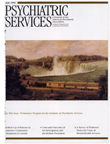Total quality management and the reduction of inpatient violence and costs in a forensic psychiatric hospital
Abstract
OBJECTIVE: The study evaluated the effects of using the principles of total quality management (TQM) to reduce aggressive incidents in the dining rooms at a state forensic hospital. METHODS: A ten-member, multidisciplinary team, which included a patient representative and a private-sector mentor, used the TQM FADE method (focus, analyze, develop, and execute) to address the problem. The team analyzed violent mealtime incidents, reviewed mealtime policies and procedures, and conducted a patient survey. Five recommendations were made: substitute plastic utensils for silverware, play music selected by the hospital's music therapists, allow patients at the highest privilege levels to leave the dining room after eating, open the main courtyard and gym during meals, and train food service workers in therapeutic communication. RESULTS: One year after implementation of the recommendations, aggressive incidents in the dining rooms were reduced by 40 percent, assaults using silverware were eliminated, and a total of 70 nursing staff hours a day were saved by eliminating silverware control procedures in the dining rooms. The milieu in the dining rooms has been improved by the addition of music and more flexible procedures. CONCLUSIONS: TQM techniques can be effectively applied in public-sector institutions to analyze and solve problems such as mealtime violence.
Access content
To read the fulltext, please use one of the options below to sign in or purchase access.- Personal login
- Institutional Login
- Sign in via OpenAthens
- Register for access
-
Please login/register if you wish to pair your device and check access availability.
Not a subscriber?
PsychiatryOnline subscription options offer access to the DSM-5 library, books, journals, CME, and patient resources. This all-in-one virtual library provides psychiatrists and mental health professionals with key resources for diagnosis, treatment, research, and professional development.
Need more help? PsychiatryOnline Customer Service may be reached by emailing [email protected] or by calling 800-368-5777 (in the U.S.) or 703-907-7322 (outside the U.S.).



